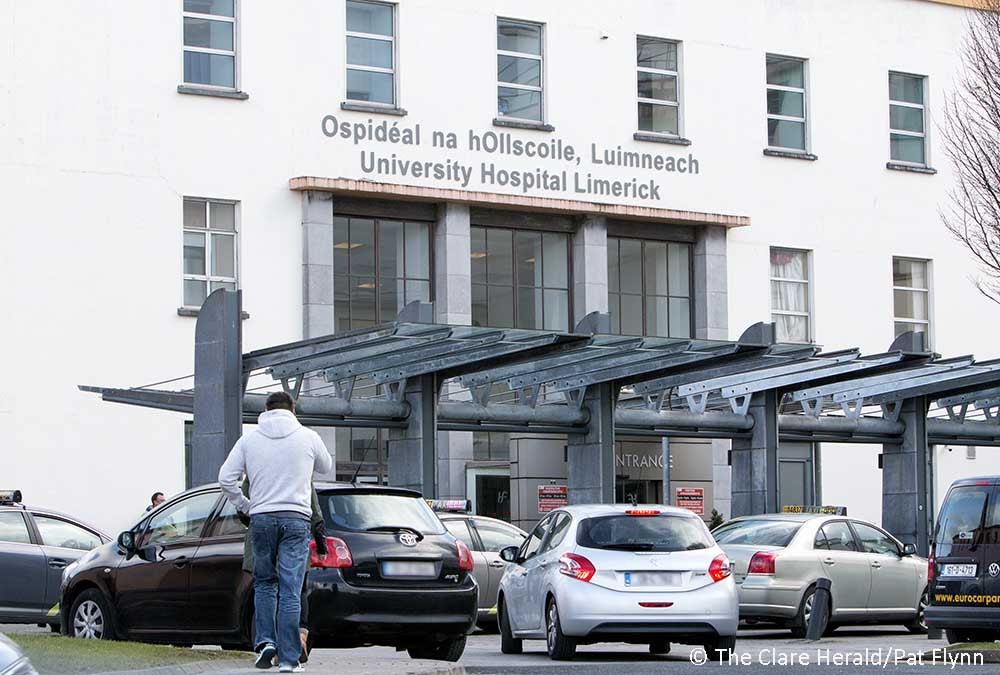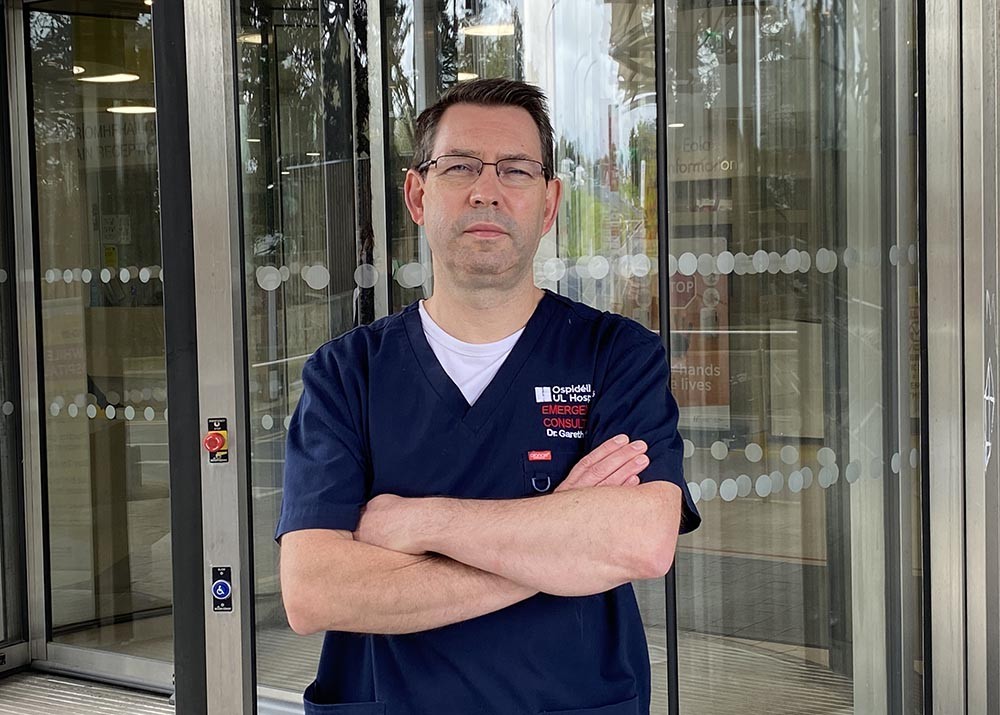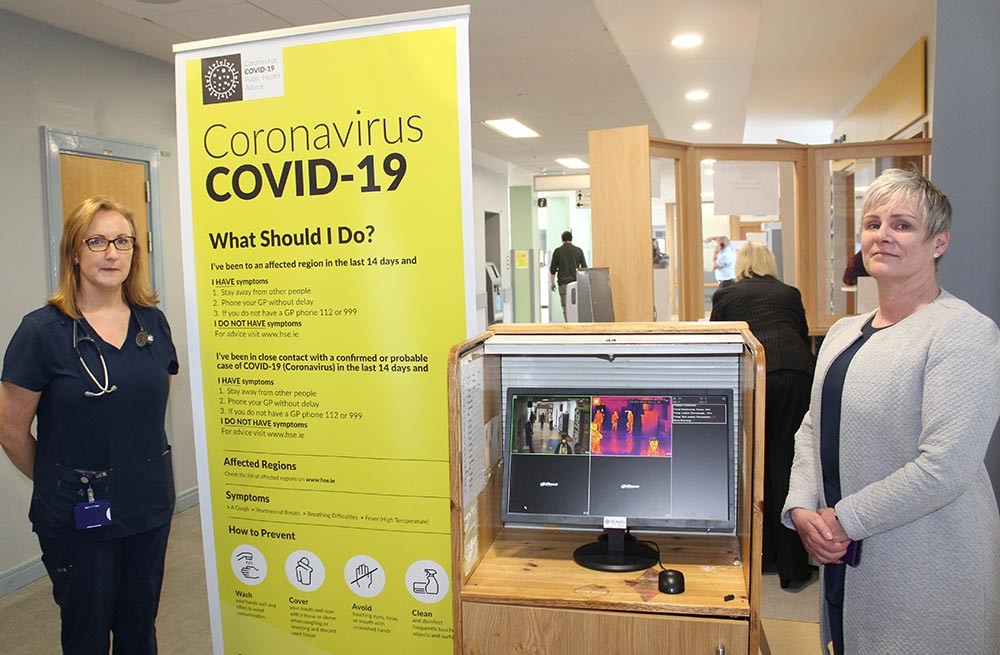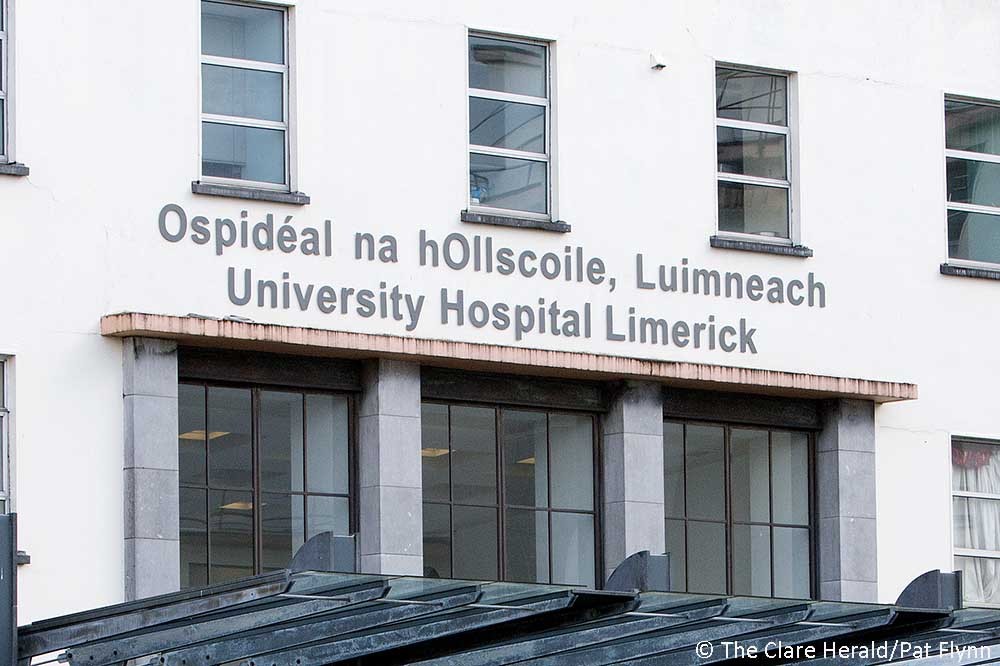
Physical distancing, infection prevention and patient streaming measures introduced at the Emergency Department (ED) in University Hospital Limerick (UHL) during the COVID-19 pandemic will remain in place for the protection of our patients and staff as COVID-19 remains an ever-present threat.
The measures were put in place in ED to reduce the risk of an outbreak of COVID-19 within the hospital; and they remain in place as part of the strategy for the safe resumption and delivery of services across all hospital sites in UL Hospitals Group.
Dr Gareth Quin, Lead Consultant in Emergency Medicine for UL Hospitals Group, said that people’s compliance to date with the national public health guidelines and with the safety measures at UHL, had helped prevent a COVID-19 outbreak in the hospital, and urged ongoing adherence to this guidance into the future.
“As activity in UHL resumes,” Dr Quin explained, “and presentations at our Emergency Department increase, it’s important that each and every one of us, hospital staff and the public alike, hold firm to the measures. The public health emergency remains just that, and we must not become complacent.”
“Given the high attendances and admissions at our ED, it’s necessary for most of the measures introduced at the peak of the pandemic to remain in place. We’re grateful for public support to date, and their continued support will help ensure that emergency medical care is reserved for the very sick patients who need it, while minimising the ever-present threat from COVID-19,” Dr Quin said.

The ED in UHL is one of the busiest in the country, and with levels of presentations now surpassing pre-pandemic levels (a weekday average of more than 200 presentations), it has become more important than ever for the department to be ring-fenced for emergency cases.
“Our ED is open 24-7 to treat people with serious injury and unexpected illness such as heart attack, stroke and other life-threatening conditions. People with less serious injuries and conditions should consider all other care options before attending our busy ED, and we ask that they continue to first consult their family doctors, pharmacists or out-of-hours GP services.’
“As part of the pandemic response, people presenting to the ED with minor injuries have been redirected to the Injury Units at St John’s, Ennis and Nenagh Hospitals. We’re thankful that the public have been understanding about this. The re-direction will continue and we would re-iterate our advice that those with more minor injuries such as limb injuries and wounds attend our Injury Units in the first instance.” Dr Quin said.
Injury Units are staffed by consultant-led multidisciplinary teams, and can treat patients over the age of 5 for a wide range of minor injuries, including broken bones, dislocations, sprains and minor burns. The only exceptions are patients with serious head, back and neck injuries, abdominal (stomach) pain, medical illnesses or mental health problems, and children under the age of five.
All three units are open seven days a week. Attendance costs €75, and there is no charge for patients with full medical cards or those who have a valid medical/GP referral letter. St Johns IU is open daily 8am-7pm, and can be contacted on 061-462303. The IU at Nenagh (open 8am-8pm) can be contacted on 067-42311, while the Ennis unit (8am-8pm) can be contacted on 065-6863121.
Dr Quin outlined the new processes that are in place in the ED to combat COVID-19: “As soon as a person registers in the department, they are asked to put on a facemask, if their face is not already covered. The first step in a patient’s ED journey is triage, where patients will meet staff wearing personal protective equipment including gown, gloves, facemask and eye protection.
It’s really important that we segregate patients who may have COVID-19 from those who are not suspected of the disease. To do this, all patients are asked a number of questions during the triage process about symptoms and signs of COVID-19. Patients whose symptoms suggest possible COVID-19 are managed in the Emergency Department with isolation and other infection control precautions. Patients who are not suspected of having COVID-19 are seen and treated elsewhere in the hospital in our Medical and Surgical Assessment Units, depending on their condition.

Patients are asked to wear a face covering and to observe physical distancing for the duration of their stay in the Emergency Department.
The new triage, assessment and admission processes will continue for the duration of the pandemic, along with the wearing of appropriate personal protective equipment (PPE) by staff in the ED, and, in line with the guidance of the National Public Health Emergency Team (NPHET), the requirement for patients to wear a facial covering.
“We recognise that for many people the sight of hospital staff in PPE may be disconcerting and the requirement to wear a facial covering may not be welcome. However, we need to continue to work together to ensure the infection does not spread within our hospitals or throughout our communities,” Dr Quin concluded.
